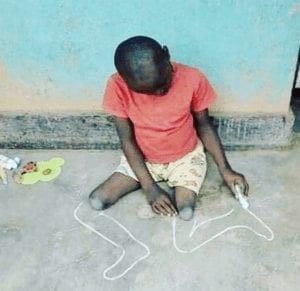Assessing amputation depression is not hard. You are recovering from amputation and know something is dragging you down. Assessing amputation depression is the next step. In a recent study, twenty percent of all amputees suffer from depression. After waking up in the hospital to realize you have had a foot or arm amputated can cause a psychological shock leaving you on the road to depression. Other factors like not having much of a family, needing to get back to work, and not knowing how to heal. It is understandable that when you lose a portion of your body, you mourn for it, and depression is a likely result. Here is a list of symptoms you may have in assessing amputation depression. These are the symptoms of depression:

1. Lack of energy even after a good night’s sleep
2.Poor concentration on things that interest you
3.Loss of interest in normally enjoyable activities
4.Social withdrawal from everyone
5.Feelings of hopelessness
6.Worthlessness around limb loss
7.Inappropriate guilt for no reason
8.Flattened emotions and a lack of feelings
9. Difficulty staying on task and finishing things
10.Changes in eating habits
Assessing Amputee Depression On Your Own
Being depressed doesn’t require you to have all these symptoms. When you are assessing amputee depression having a few of them may be a warning. The next article will discuss the treatment of depression after an amputation. Here is a comprehensive depression test put out by Psychology Today. The test takes twenty minutes, and you get the results immediately. They designed this assessment to determine if you currently have or are at risk of developing a depressive disorder, and to assess if your mindset increases your susceptibility to depression.
After finishing this test, you will receive a FREE snapshot report with a summary evaluation and graph. You will then have the option to purchase the full results for $4.95 from Psychology Today. A lack of control over the situation is also frequently experienced following an amputation. Assessing amputation depression helps being involved in your care by asking questions of the doctors, nurses, and therapy team. This allows the amputee and their family to gather the information required to tackle any concerns, reduce uncertainty, and plan for the future, thereby creating a greater sense of control. Remember there is never a silly question!
Having goals to work towards, particularly during rehabilitation, is imperative. Goals should be meaningful to one’s life but also attainable and realistic and your therapists will be able to help develop such goals. Setting and achieving goals often provides people with a sense of purpose, structure, and improves confidence and self-esteem. When you start assessing amputation depression you will develop these goals.
Similarly, having a daily routine and planned activities is a useful strategy that helps one to cope. It may keep people occupied, acting as a distraction, and prevents them from dwelling on their situation, which over time can be detrimental to physical and mental health.
However, one cannot always keep themselves busy. There will be times when worries pop up and may cause distress. Helpful tips for dealing with worrying thoughts include problem-solving, taking action if able, relaxation, mindfulness, and “letting go” strategies. It may also be useful to try to adopt an attitude of “taking things as they come”.
Amputees have found that maintaining a positive/optimistic attitude can help with coping. “Put things into perspective” and reminders of one’s achievements (both relating to rehabilitation/recovery and life in general) can encourage a helpful attitude. It is also beneficial to engage with a professional, such as a psychologist, to develop further coping strategies.
Finally, a key area in facilitating one’s coping following an amputation is to ensure they are able to again participate in meaningful life activities, to re-establish a sense of normality and self-worth. This includes important life roles, such as caring for themselves, being a family member, and returning to work, driving, and hobbies. Having a prosthesis can assist with one’s integration back into such activities. Furthermore, we know from mental health research, participation in pleasant, community, and social activities along with having a general purpose in life, are beneficial to one’s physical and emotional wellbeing. Lastly, re-engaging in life’s activities demonstrates to the amputee and their family that the loss of a limb does not define them.
Adjusting to an amputation takes time and people experience a variety of emotions throughout the journey. Utilizing practical strategies such as self-care, staying in touch with support networks, and being informed and involved in the recovery process can all facilitate the process of coping, leading to positive health. This is how assessing amputation depression can help you achieve the best recovery.
Emotional and Psychological Reactions to Amputation





